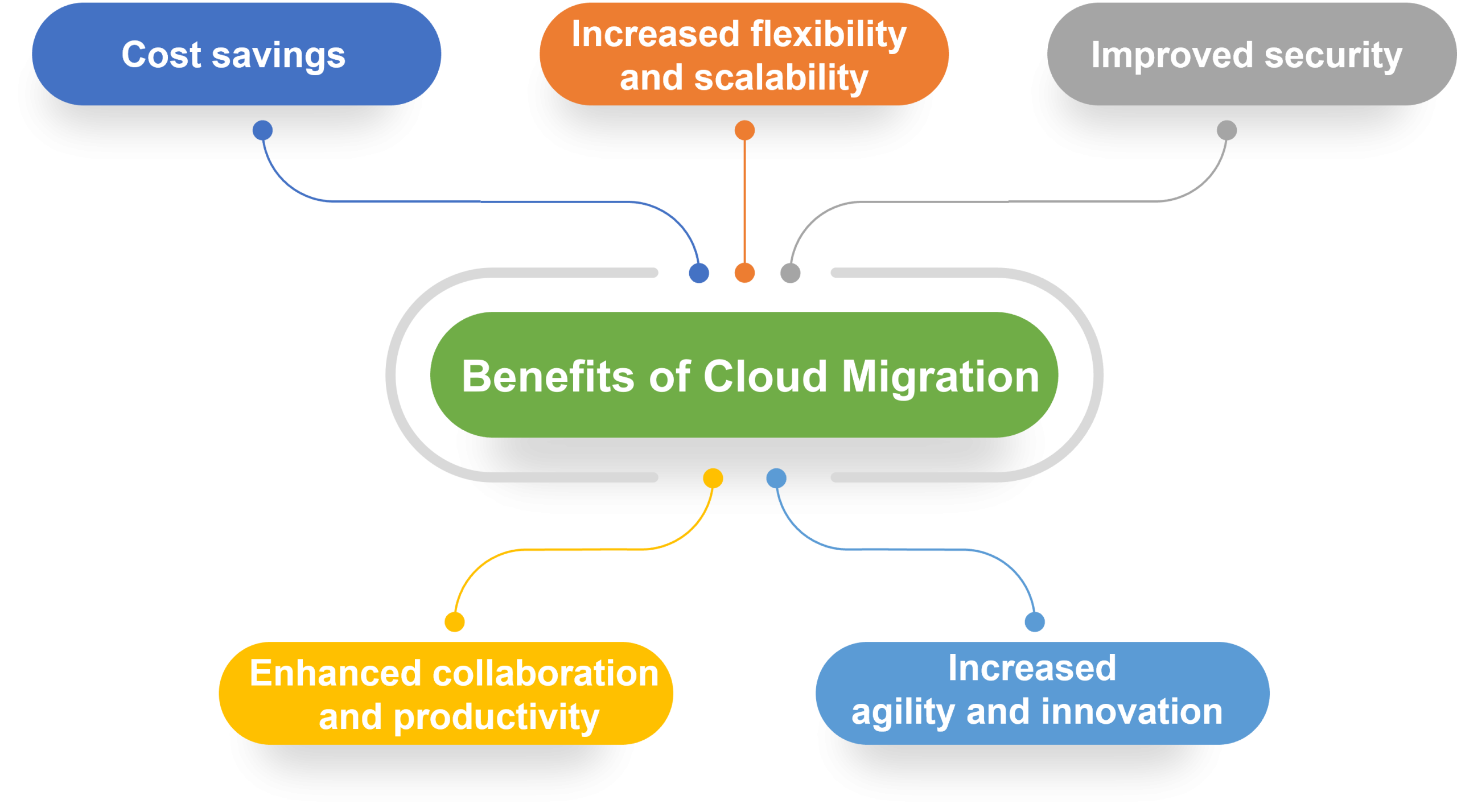In today’s digital-first economy, cloud technology stands as a pivotal element in the transformational journey of businesses, fostering agility, innovation, and scalability. Cloud migration, the strategic shift of organizational data, applications, and processes from on-premise infrastructures to cloud environments, is a critical step in leveraging these benefits. However, the inherent complexities and technical demands of cloud migration pose significant challenges, prompting many organizations to consider outsourcing these services.
Outsourcing cloud migration not only offers access to specialized expertise but also ensures a more streamlined, secure, and cost-effective transition. This article delves into the strategic advantages of outsourcing cloud migration services, addressing the challenges it overcomes and outlining key considerations for selecting a reliable outsourcing partner.
The Imperative of Cloud Migration
Transitioning to the cloud is not merely a technological upgrade but a strategic move that enables businesses to tap into advanced computing resources, achieve greater scalability, and drive innovation. The cloud’s flexibility allows organizations to respond swiftly to market changes, scale operations on demand, and reduce IT overheads, thereby enhancing their competitive edge.
Advantages of Outsourcing Cloud Migration
Access to Specialized Expertise
Cloud migration is a nuanced process, demanding a deep understanding of both the source and target environments. Outsourcing provides access to teams with specialized skills and extensive experience in cloud migrations, ensuring a strategic and tailored approach that aligns with the organization’s unique requirements.
Risk Mitigation
The risks associated with cloud migration, including data loss, security breaches, and business disruption, are significant. Outsourced providers utilize proven methodologies and advanced tools to mitigate these risks, ensuring a secure and seamless transition.
Cost Efficiency
Building an in-house team equipped for cloud migration is often resource-intensive and not cost-effective, especially for one-off migrations. Outsourcing eliminates the need for substantial investments in hiring, training, and technology, offering a more financially viable solution.
Strategic Business Focus
Outsourcing cloud migration allows organizations to concentrate on their core business functions without being encumbered by the complexities of the migration process. This strategic focus ensures that businesses can continue to innovate and grow while the migration is expertly managed by external specialists.
Navigating Outsourcing Challenges
While outsourcing presents a strategic solution for cloud migration, it is crucial to address certain challenges to maximize its benefits:
Selecting the Right Partner
The success of cloud migration significantly hinges on choosing a competent outsourcing partner. It is essential to select a provider with a robust track record, relevant expertise, and a clear understanding of the business’s goals and industry standards.
Ensuring Data Security
Data security is paramount during cloud migration. Businesses must ensure that the outsourcing partner adheres to stringent security protocols and complies with industry-specific regulations to safeguard sensitive information throughout the migration process.
Effective Communication and Collaboration
Clear and consistent communication is vital to align the outsourcing provider’s efforts with the business’s objectives and expectations. Establishing effective collaboration channels ensures that the migration process is transparent and in sync with the organization’s strategic vision.
Comprehensive Post-Migration Support
Post-migration support is crucial to address any issues that arise and to optimize cloud operations. Ensuring that the outsourcing partner offers extensive support and optimization services is key to realizing the full potential of the cloud environment.
Choosing the Right Outsourcing Partner
When selecting an outsourcing partner for cloud migration, businesses should consider the following factors:
- Proven Expertise: Evaluate the provider’s experience and success in cloud migrations, especially in similar industry sectors or with comparable technical requirements.
- Security and Compliance: Verify the provider’s commitment to security and their ability to comply with relevant data protection regulations.
- Strategic Alignment: Ensure the provider understands the business’s strategic goals and can align the migration approach to support these objectives.
- Transparent Pricing: Clarify the pricing model to ensure it aligns with the expected outcomes and provides value for the investment.
- Post-Migration Support: Confirm that the provider offers robust post-migration support to optimize the cloud environment and address any emerging challenges.
Conclusion
Outsource cloud migration services is a strategic decision that enables businesses to harness the transformative potential of the cloud, mitigating risks and optimizing costs in the process. By choosing the right outsourcing partner, organizations can ensure a seamless, secure, and effective migration, allowing them to focus on their core competencies and strategic growth. As the digital landscape continues to evolve, outsourcing cloud migration emerges as a crucial strategy for businesses seeking to innovate, scale, and maintain a competitive edge in the modern digital economy.
